National
Trudeau’s 2024 budget includes $150 million to promote ‘2SLGBTQI+’ ideology at home and abroad
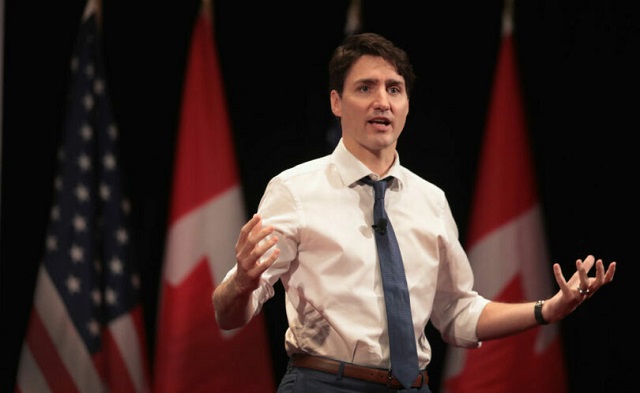
Photo by Scott Olson/Getty Images
From LifeSiteNews
The Trudeau government plans to expand ‘equity groups’ to include people who identify as ‘2SLGBTQ+’ and to spend tens of millions of taxpayer dollars to promote its ‘Federal 2SLGBTQI+ Action Plan’ and ‘embed’ LGBT issues in the Canadian government.
The Trudeau government’s 2024 budget features plans to spend tens of millions of taxpayer dollars to promote LGBT ideology at home and abroad and to expand “equity groups” in the workforce to include people who identify as “2SLGBTQI+.”
According to Canada’s 2024 Budget, Prime Minister Justin Trudeau intends to spend $150 million over 10 years and to expand the Employment Equity Act to further advance LGBT ideology.
“Following the recommendations of the Task Force, Budget 2024 announces the government’s intention to propose legislative amendments to modernize the Employment Equity Act, including by expanding designated equity groups,” the budget states.
Under Canada’s Employment Equity Act, women, Aboriginal peoples, persons with disabilities, and members of visible minorities are included as those deserving of “special measures” by employers. However, the Trudeau government is now seeking to broaden that to add those who identify as “Two-Spirit, lesbian, gay, bisexual, transgender, queer, [and] intersex,” as well as “additional [so-called] sexually and gender diverse people.”
The taxpayer dollars will be used “to support Canada’s first Federal 2SLGBTQI+ Action Plan, a whole of-government approach to prioritize and sustain 2SLGBTQI+ community action, to advance and strengthen 2SLGBTQI+ rights [sic] at home and abroad, and to embed 2SLGBTQI+ issues in the work of the Government of Canada.”
The commitment to promote the LGBT agenda in the government and workplaces comes after a December report recommending legislative changes to hiring practices from merit-based ones to practices favoring minority groups.
One recommendation suggested employers should “correct” underrepresentation of minority groups among their staff.
However, Trudeau’s spending of public funds to push homosexual and transgender ideology should not come as a surprise to Canadians.
Last June, during the designated month of LGBT “pride,” the Trudeau government pledged $1.5 million in what it claims is “emergency funding” for “pride” month to fund increased security to organizations running parades, which often feature nudity and extremely graphic homosexual activity.
Later the same month, records revealed that the Liberal government gave $12 million for “pride” events during COVID lockdown years.
Business
After successful anti-American election campaign, Carney pivots to embrace US: Hails Trump as a “transformational president”
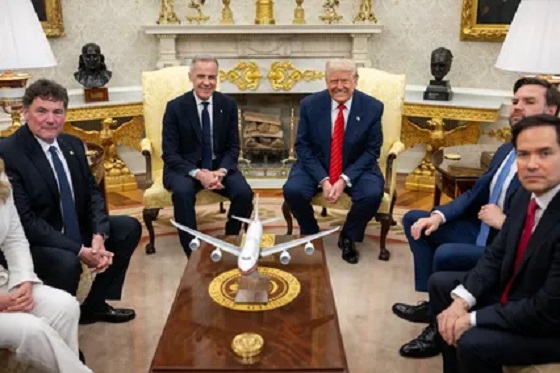
 MxM News
MxM News
Quick Hit:
Canadian Prime Minister Mark Carney met with President Donald Trump at the White House on Tuesday and praised the American leader as a “transformational president” with a relentless focus on workers, border security, and combatting fentanyl.
Key Details:
-
In front of reporters in the Oval Office, Carney said Trump was “focused on the economy, with a relentless focus on the American worker, securing your borders… ending the scourge of fentanyl and other opioids, and securing the world.”
-
The newly elected Canadian leader said he intends to implement a similar agenda in Canada, including heightened attention to border security, defense, and Arctic development.
-
Despite past trade friction between the two countries, Carney voiced confidence in the future of U.S.-Canada relations, stating, “We’re stronger when we work together… I look forward to addressing some of those issues that we have.”
Diving Deeper:
Canadian Prime Minister Mark Carney offered striking praise for President Donald Trump during a Tuesday visit to the White House, calling him a “transformational president” who has reshaped the global conversation on the economy, national security, and public health. Speaking alongside Trump in the Oval Office, Carney lauded the president’s focus on protecting American workers, confronting the fentanyl crisis, and reinforcing the nation’s borders.
“You’re a transformational president, focused on the economy, with a relentless focus on the American worker, securing your borders… ending the scourge of fentanyl and other opioids, and securing the world,” Carney told Trump.
According to Carney, many of the issues central to Trump’s presidency were also top concerns for Canadian voters. “I’ve been elected… with the help of my colleagues here, I’m going to spread the credit, to transform Canada with a similar focus on the economy, securing our borders, again, on fentanyl, much greater focus on defense and security, securing the Arctic and developing the Arctic,” he said.
Though the two leaders were cordial, the backdrop of their meeting carried a history of trade disputes. Early in Trump’s second term, his administration imposed tariffs on Canadian goods—a move that prompted retaliatory measures from then-Prime Minister Justin Trudeau. Still, Carney emphasized cooperation and struck a hopeful tone, noting that the U.S.-Canada relationship has endured challenges before.
“The history of Canada and the U.S. is we’re stronger when we work together, and there’s many opportunities to work together,” Carney said. “I look forward to addressing some of those issues that we have, but also finding those areas of mutual cooperation so we can go forward.”
President Trump, for his part, congratulated Carney on his election and offered warm words of welcome. “I want to just congratulate you. That was a great election, actually,” Trump said. “We were watching it with interest, and I think Canada chose a very talented person, a very good person… it’s an honor to have you at the White House and the Oval Office.”
The meeting marked Carney’s first official trip to Washington since taking office and served as an early sign that the two North American leaders may chart a path of renewed collaboration—grounded in shared priorities of national strength and economic growth.
Business
Reality check—Canadians are not getting an income tax cut
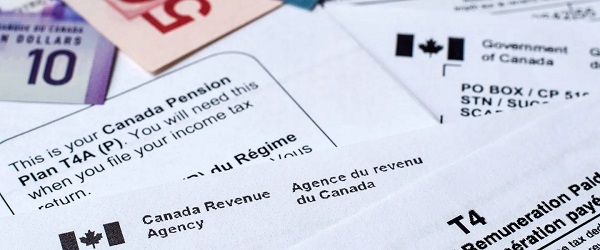
From the Fraser Institute
By Jason Clemens and Jake Fuss
On the campaign trail, both the Conservatives and the Liberals promised to cut personal income taxes, and with the Liberal Party winning a minority, one assumes the Carney government will fulfill the promise and reduce the bottom personal income tax rate from 15 to 14 per cent. However, in reality, due to the dismal state of federal finances, neither party actually offered a tax reduction but rather simply a deferral of taxes to the future.
The key variable in any government’s fiscal policy is spending. It represents the amount of resources the government plans to marshal for its various programs and transfers. At any given point in time, a country has only so many resources (i.e. raw materials, workers, equipment, etc.) and a government’s spending plan represents the share of those resources it intends to use for its purposes rather than leaving them in the hands of the people, families and businesses that actually created them.
Taxes are simply the way governments finance that spending. But it’s not the only way. Governments in many western countries, particularly Canada and the United States, have increasingly relied on borrowing to finance current spending. Instead of raising taxes today to pay for increased spending, governments defer those taxes into the future by borrowing and increasing government debt.
According to the Trudeau government’s last economic update, Ottawa expected to collect $516.2 billion this year (2025/26) but planned to spend $558.3 billion on programs and debt interest payments. The difference—$42.2 billion—represents how much the federal government plans to borrow.
According to the Liberal Party’s election platform, the promised tax cut to the lowest personal income tax rate will reduce revenues by a projected $4.2 billion this year. If the Liberal platform also reduced spending by at least the same amount, the tax cut would represent a real reduction in the amount of resources used by government and thus a genuine reduction in the tax bill for Canadians.
But the Liberal platform doesn’t reduce spending. In fact, it proposes marked increases ($29.4 billion this year) on already record levels of spending by the previous government. And the planned deficit this year is expected to increase from a projected $42.2 billion under Trudeau to $62.3 billion under Carney.
Put differently, Prime Minister Carney plans to use more resources in government for his new spending and investments compared to Trudeau. However, Carney plans to collect slightly less taxes now by shifting the burden to more borrowing, which simply means more debt and higher debt interest payments, and ultimately higher taxes in the future.
These decisions are not also without immediate costs. Under Trudeau, total federal debt increased from $1.1 trillion in 2014/15 (the year before he took office) to an expected $2.3 trillion this year. (Again, Carney plans to increase the amount of debt accumulated this year and at least the next three years.) Debt interest payments also increased from $24.2 billion the year before Trudeau took office to a projected $54.2 billion this year.
Carney’s plan, which includes higher debt levels, means those interest costs will increase. Interest payments represent resources extracted from Canadians that are not available for actual programs such as health care or genuine tax relief.
So while the new government may tell Canadians that its delivering tax relief, it’s not. It’s simply kicking the can down the road by financing higher spending through more borrowing. That means higher interest costs, higher debt and ultimately higher taxes in the future.
-

 COVID-192 days ago
COVID-192 days agoUS Government ADMITS It Approved Pfizer’s COVID “Vaccine” Despite Knowing About a Long List of Trial Violations
-
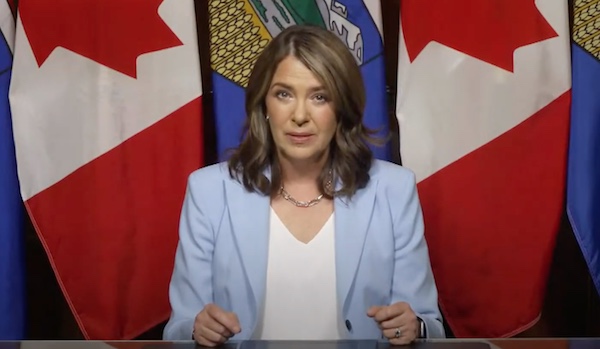
 Alberta1 day ago
Alberta1 day agoPremier Smith seeks Alberta Accord: Announces new relationship with Ottawa
-

 Artificial Intelligence2 days ago
Artificial Intelligence2 days agoThe Responsible Lie: How AI Sells Conviction Without Truth
-
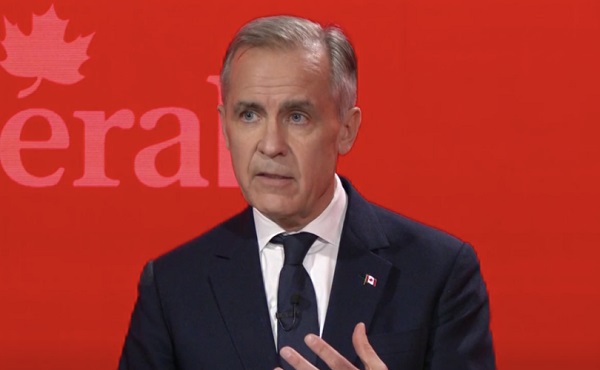
 Energy2 days ago
Energy2 days agoIs the Carney Government Prepared to Negotiate a Fair Deal for the Oil, Gas and Pipeline Sectors
-

 Business2 days ago
Business2 days ago‘Got To Go’: Department Of Energy To Cut Off Billions Of Dollars’ Worth Of Biden-Era Green Energy Projects
-
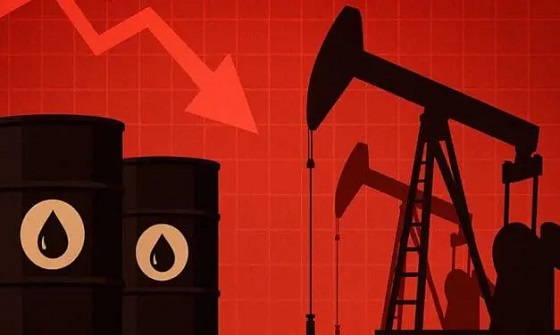
 Alberta1 day ago
Alberta1 day agoSaudi oil pivot could shake global markets and hit Alberta hard
-

 Agriculture1 day ago
Agriculture1 day agoCanada is missing out on the global milk boom
-

 International2 days ago
International2 days agoWhite smoke vs. black smoke: How do we know when we have a new pope?






